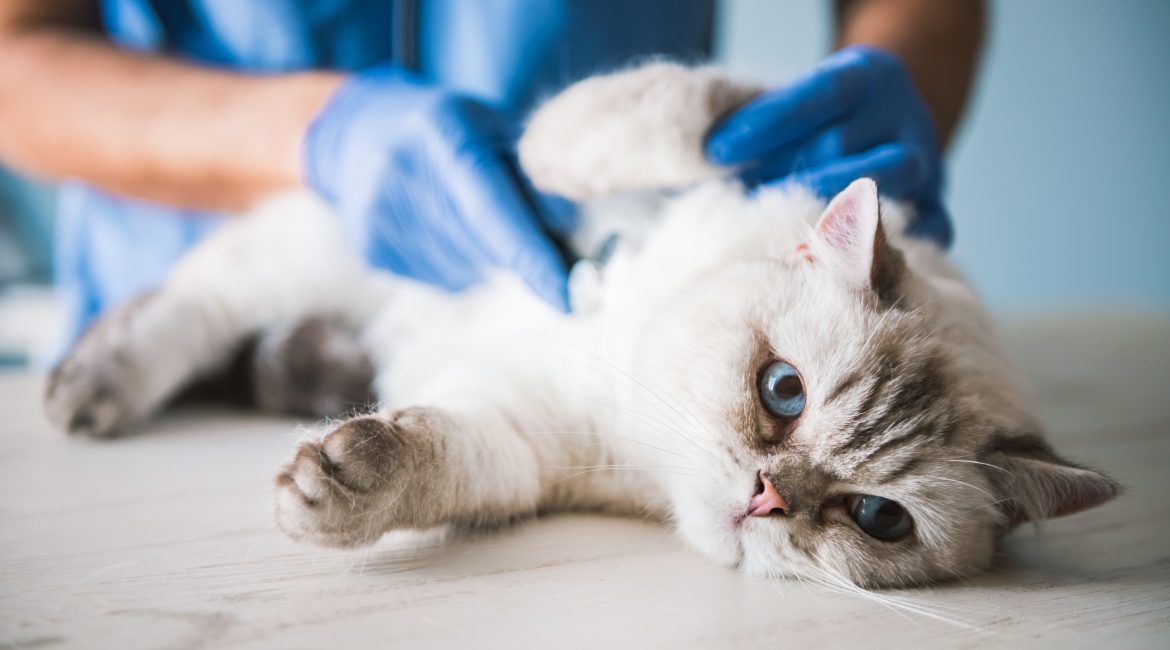There are a few commonly known feline illnesses; some can be vaccinated against, and some can’t, while some can be treated or managed, and others can’t.
Here are some of the most well known feline illnesses
Distemper
This is a gastrointestinal disease and can result in fever, diarrhoea, and dehydration. As mentioned, there is a vaccination for this disease but unfortunately there is no adequate treatment, and death may result in 60 to 90 per cent of cases. However, the vaccine is extremely effective so make sure your kitten gets hers.
Feline Leukaemia
This is a highly contagious disease and can present with various symptoms, but some of the more common ones are:
- Weight loss
- Lethargy
- Tumours
- Low immune systems, making them vulnerable to infections
Luckily, there is also a vaccination for this disease that significantly decreases the chance of your precious kitty contracting it.
Feline Immunodeficiency Virus
This disease is also known as feline AIDS and is usually transmitted through bites and scratches. The stages of this disease are similar to HIV in people, presenting with lethargy and drastic decrease in appetite, among others.
However, many cats with this disease can live for many years after transmission, providing their owners give them the healthcare and diet they need.
Parasites
Roundworm and Tapeworm
These are two common parasites found in cats, and both are treatable, although not always preventable.
Kittens are particularly susceptible to roundworm, but it can be treated by taking them to the vet regularly for deworming treatment. However, know that adult cats are still at risk for picking up roundworm.
In contrast, tapeworm is likely to occur in cats that hunt for their food and those that have fleas. Your vet will treat your cat with appropriate medication, usually in the form of tablets or an injection.
Related: 10 Symptoms of Worms in Dogs
Fleas
This one we’ve all heard of. These little guys are the bane of cats’, dogs’, and humans’ existence. They drive our pets to scratch and chew incessantly, which drives us around the bend.
At the very first signs of a flea infestation, you should implement a treatment. This can involve spot-on applications, flea collars, powders, shampoos, special combs, and oral treatments, but it is vital to only stick to medicine that is specifically developed for cats, as dog doses may result in serious harm to your kitty.
The Bottom Line
All these feline illnesses can lead to serious health complications, so if you are concerned about your cat, it’s best to take her to your vet right away.
Luckily, if you’ve got Oneplan Pet Insurance, you won’t have to worry about how to afford these vet visits. Simply have your funds deposited into your Onecard before you go via the Oneplan App and use your Onecard to pay – it’s that simple!
Another amazing benefit is that, as a Oneplan Pet Parent, you can get up to 25% discount* on the Onepet Premium Pet store for tick & flea treatment to avoid those pesky fleas all together, as well as a variety of other pet supplies like food, grooming, chronic care, and more!
Take the step towards putting your fur baby’s health first AND getting value back by clicking here for a free online quote.
Your Pet Insurance Family,
Oneplan
*Discounts tiered & excludes Accident Plan.




